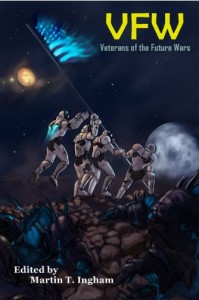Today and tomorrow’s posts are in recognition that not all of the Fictorians are American, and neither are all of our readers. These blog posts, written in conjunction with Marie Bilodeau, are from the point of view of two Canadians. Marie’s been claiming her writing income on her taxes for 5 years, and I’ll be doing the same this year, for the first time. If you’re not Canadian or American, we strongly recommend you look into tax laws in your country to determine whether it is worthwhile for you to claim your writing as a small business, how to go about doing so, what types of expenditures qualify as “business expenses”, and how to claim income from your writing career.
If you’re a writer selling your fiction, then congratulations – you’re a small business. Operating as a small business entitles you to certain exemptions at tax time that might help you to save money. However, the law also requires you to pay taxes on your income – something which may not be deducted automatically, particularly not if your publisher is in a different country than you.
If you’ve not yet made your first sale, or if your first sale is small, it’s too early to claim writing expenses on your tax forms. You may view your writing as a business—in fact, it’s wise if you think about yourself that way and conduct yourself professionally—but until you begin making money, the government will class your writing as a “hobby” and you will not be considered eligible for tax credits. However, you may still be able to claim certain writing or business related courses as adult learning, or skills upgrading, depending on a variety of living factors. An accountant will be able to advise you whether your courses are claimable.
Saving money on taxes by claiming writing expenses is great! Where’s the downside? The downside is that you must report all the income you earn from writing and, if necessary, pay taxes on that income. If you receive a paper cheque, save the income slip that comes with it. If you’re paid via paypal, print out the email that indicates you’ve received a payment. Make certain to report ALL the money you’ve made from selling your writing to publishers. It’s better to report too much, than not enough. Unlike with most jobs, where tax money is taken off before you ever receive your pay cheque, in these cases, you will receive the bulk amount and be expected to save enough of it to pay for the taxes come tax time. Keep savings in reserve for April, and then, if your tax bill comes to less than you expected, you can spend or save the remainder.
As a rough guideline, don’t expect your savings to exceed your earnings. That means, if you make $600 of writing income in a calendar year, but your receipts entitle you to $900, you’ll only qualify for $600. It may still be worth claiming all the receipts, though, as you’ll be able to carry your losses forward.
However, if your business loses money (you spend more than you make) continually, red flags may be raised. Businesses are expected, eventually, to make profit; an activity that always takes money might be better classified as a hobby. If you don’t get a big contract right away, and are spending a few years selling a short story here and a novella there, Marie and a fellow writer recommend that every 3-5 years you consider reporting a profit to prove you are a viable business—if you’re a voracious book-buyer like me, that may simply mean not claiming the vast quantities of books you buy that year as “research materials.”
Come back tomorrow for Part 2: Receipts , Working With an Accountant and Useful Links.


